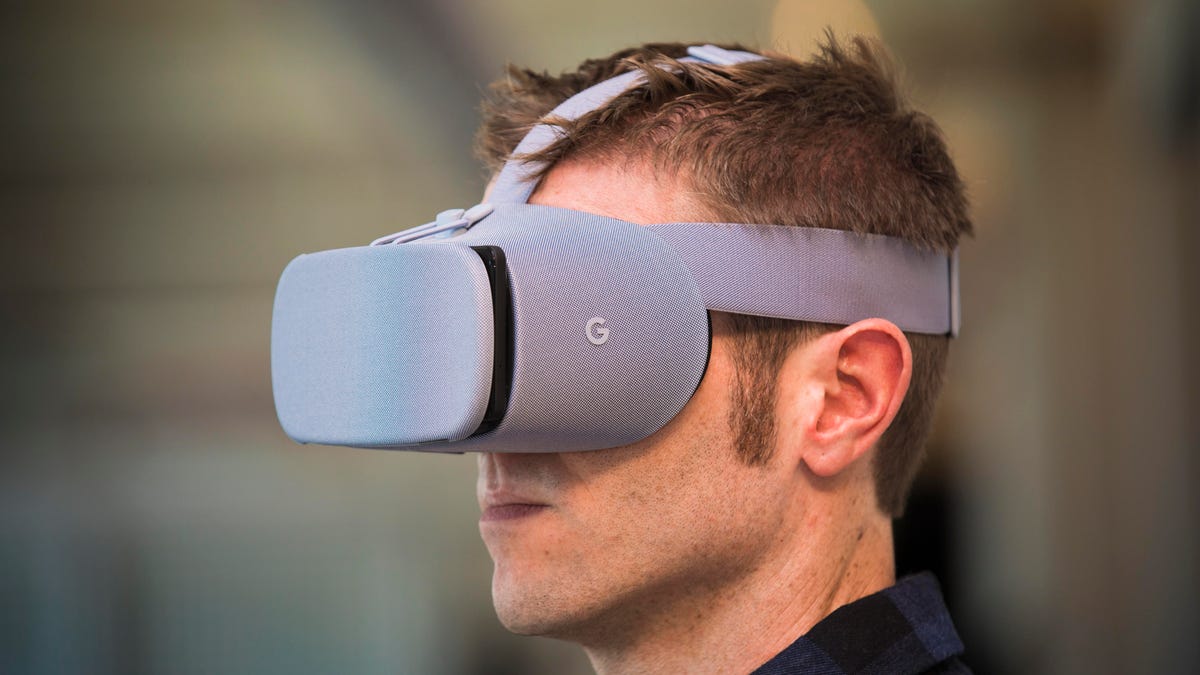Google and LG could be fixing the dreaded 'screen door' for your next VR headset
Google and LG Electronics are set to reveal an 18-megapixel OLED display, which could eradicate one of the main problems with VR headsets.

Google's current Daydream VR headset.
Google and LG are expected to unveil the highest-resolution OLED VR display yet at Display Week in May, according to the event's program guide (as noted on Monday by Digital Trends.)
The two companies are heading a session at the conference entitled "An 18-megapixel, 4.3inch, 1,443 ppi, 120 Hz OLED display for wide field-of-view, high-acuity, head-mounted displays." That spec equates to a resolution of 5,657x3,182 pixels with a standard HD screen ratio.
The program gives further details, with LG's familiar "white OLED with color filter structure technology" forming the basis of the display.
By comparison, the most popular VR display for PC, the Oculus Rift , is only 3.5 inches on the diagonal, with a combined resolution of 2,160x1,200 pixels and 461 ppi.
The display is said to have a "higher electron mobility compared to mobile phone displays," which suggests Google may be looking at a dedicated device. Its current VR system, the Daydream View, has you plugging a regular phone into a headset.
Apart from the cable-tethering issue -- which Oculus is working on with its "Pacific" project -- Google could be looking to address the "screen door effect" of low-resolution VR displays, which is another impediment to wide-scale VR adoption.
Neither LG nor Google immediately responded to CNET's request for comment.

